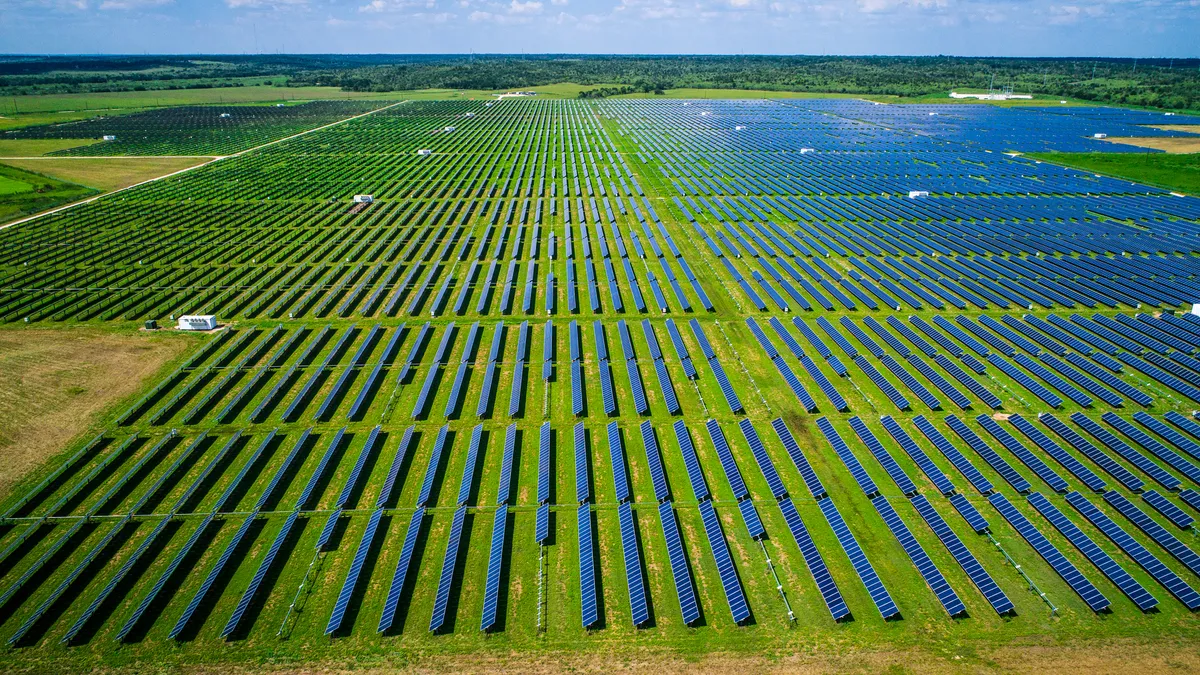Dive Brief:
-
The Solar Energy Industries Association urged U.S. Commerce Secretary Gina Raimondo to reject claims of solar tariff circumvention in Southeast Asia in a Wednesday letter signed by more than 240 solar and energy storage companies.
-
A determination that the companies subject to investigation participated in tariff circumvention would represent “an improper expansion of U.S. anti-circumvention law,” according to SEIA.
-
The solar industry has taken steps to reduce its reliance on regions associated with forced labor and has begun to recover from two years of supply chain challenges, but a finding for the tariff circumvention claims would jeopardize this progress, according to the letter.
Dive Insight:
With the Dec. 1 deadline approaching for a preliminary decision at the U.S. Department of Commerce on whether solar panels imported from certain Southeast Asian countries circumvented tariffs on Chinese-made solar components, the solar energy industry says the fate of the Biden administration’s renewable energy policy could hang in the balance.
“President Biden took a crucial near-term step over the summer to free up a gridlocked solar supply chain, but companies won’t be able to capitalize on the administration’s landmark climate policy if this baseless case isn’t thrown out,” Abigail Ross Hopper, SEIA president and CEO, said in a statement, referring to the passage of the Inflation Reduction act this past summer. “The Inflation Reduction Act has launched a steady stream of manufacturing investments in the United States, but more tariffs will only undermine this success.”
The letter to Secretary Raimondo, signed by some of the nation’s largest solar companies including Sunrun and SunPower, touts the industry’s progress on increasing traceability for solar components and reducing its dependence on regions where forced labor is believed to take place.
The industry is also set for a wave of growth after several years of setbacks due to supply chain constraints and rising material and labor costs thanks to the IRA. But the application of new tariffs to foreign solar components, a potential outcome should the Commerce Department determine that solar panels from Southeast Asia were subject to tariffs on solar components built in China, would jeopardize the industry’s growth and recovery, according to the letter.
“Our clean energy future, our energy security, and America’s prosperity all depend on the Department making the right determination in this case,” the letter reads.
Mamun Rashid, CEO of California-based solar manufacturer Auxin Solar, one of the petitioners who raised the complaints leading to the Department of Commerce investigation, declined to comment on actions that “do not address the substance of the case.” But he said Auxin had full faith that the Department of Commerce would fairly apply U.S. law and “protect U.S. manufacturers from unfair trade.”
The Commerce Department’s announcement that it planned to investigate claims of tariff circumvention in Southeast Asia had a significant impact on U.S. solar companies earlier this year. In a survey conducted by SEIA, business owners reported that they had to put business expansions on hold, delay planned projects and implementing hiring freezes as a result of solar module shortages that followed the announcement. SEIA estimated the investigation put 70,000 jobs in the solar industry at risk.














